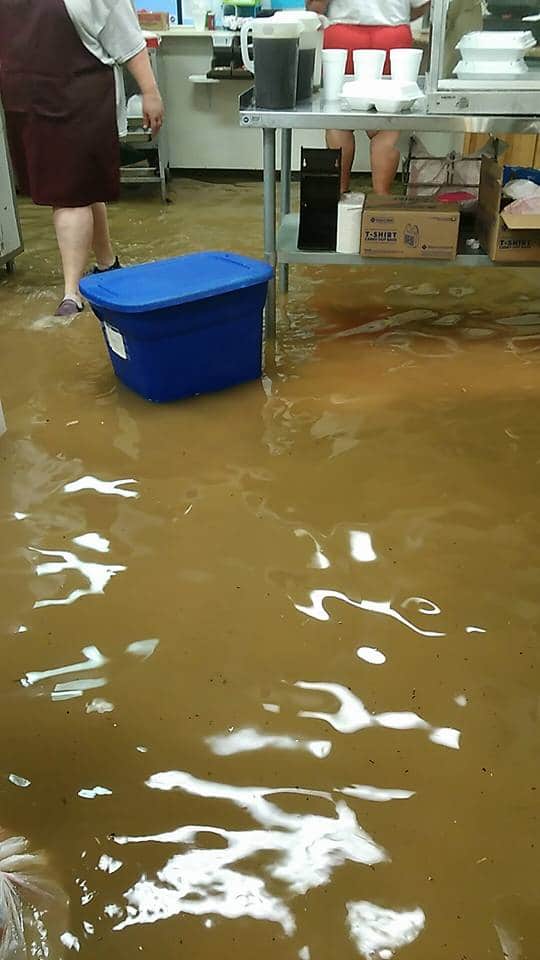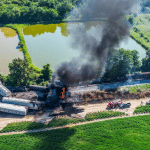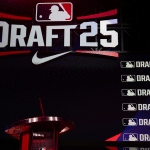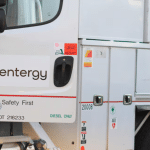Attorney General Lynn Fitch is urging those affected by the flooding of the Pearl River to be mindful of those who might try to take advantage of consumers who were hard hit by this natural emergency. She shares these tips:
Home Repair Tips:
Here are some tips to protect yourself and loved ones from fraudulent contractors and others:
- Verify that the company you are considering is insured. Ask for a copy of the certificate of insurance.
- Do your research. Contact our Consumer Protection Division, the MS State Board of Contractors, or the Better Business Bureau of Mississippi to see if they have complaints against the company. Ask for several local references and make to check them. Look online for reviews of their work.
- Take time to shop around, and be suspicious of any price that seems unusually high or low. Get written estimates from more than one company, and check with friends or family who have had work done recently to see what they paid and who they recommend.
- Ask how the job will be carried out and if they will perform the work according to industry standards. For tree removal services, pay attention to the “lingo” such as “topping a tree,” “lion’ s-tailing” or “using climbing spikes to prune a tree.” Sometimes these techniques will be presented as a way to save money by removing more of the tree at one time; however, these practices can injure or kill trees, and trees pruned by one of these methods usually requires more expensive restoration work in the future to save it.
- Ask for details on post-job cleanup and debris removal. Before the job is started, ask if the company will remove the tree, damaged roof, or other items from your property as well. If you do not, it could lead to you having to also pay for debris removal.
Flooding/Car Purchases
Car buyers should be cautious when shopping at used car markets, particularly after a flood event. Extra inspection should be given to these cars to be sure the vehicle you are buying was not damaged in a storm.
The Attorney General’s Office offers these tips when car shopping after a flood:
- Inspect vehicles carefully, paying attention to hidden areas that could collect mud or silt.
- Look for water stains, mildew, or sand under the carpet and floor mats and in the console and wheel well, where the spare tire is stored. Also, look for fogging or moisture in the interior lights, exterior lights, and dashboard.
- Smell the interior of the car. A heavy aroma of cleaners and disinfectants could be a sign that someone’s trying to mask a mold or odor problem.
- Feel and listen for problems. Have your mechanic inspect the car’s mechanical and electrical components and systems that contain fluids for water contamination. Notice if anything feels or sounds unusual.
- Understand the difference between “salvage branded title” and “flood branded title.” A salvage branded title means the car was declared a total loss by an insurance company because of a serious accident or some other problems. A flood branded title means the car has damage from sitting in water deep enough to fill the engine compartment. The brand is a permanent record that prints on the title. Therefore, when you are buying a vehicle, be sure to check the front of the title for any brands that provide important information about the condition of the vehicle. Examples of these brands include the following: salvage, rebuilt, flood-damaged, and hail-damaged. The title status is part of a vehicle history report.
- Know that some vehicles cannot be titled or tagged. Some states issue Certificates of Destruction on the vehicles that have flooded in their state. If a vehicle has a Certificate of Destruction and/or a brand of “Junk,” “Parts Only” or “Non-Repairable” issued by ANY state, these vehicles cannot be titled or tagged in the State of Mississippi.
- Obtain a vehicle history report. The National Insurance Crime Bureau’s free database includes flood damage and other information. Also read through the National Motor Vehicle Title Information System reports, which protect buyers from concealed vehicle histories as the only public system that requires insurance carriers, auto recyclers, junk and salvage yards, and states to report vehicle history information.
- Do your research. Contact our Consumer Protection Division or the Better Business Bureau of Mississippi to see if they have complaints against the company.
- Take time to shop around, and be suspicious of any price that seems unusually high or low.
Price Gouging
Emergencies bring out the best in some people, and we all love seeing neighbors rescuing neighbors on the evening news. But sometimes emergencies bring out the worst, too. If you suspect that someone is unfairly raising their prices to take advantage of the current floods, you may be able to do something about it. Remember: Not every instance of raised prices is price gouging, and the Governor has not activated the price gouging statute in his declaration. Take a photo, including a time and date stamp, of the price signs while at the business. It may be useful in any investigation.
If you suspect home or vehicle fraud or think you may be the victim of a scam, please contact the Office of the Attorney General Consumer Protection Division at (601) 359-4230 or (800) 281-4418








